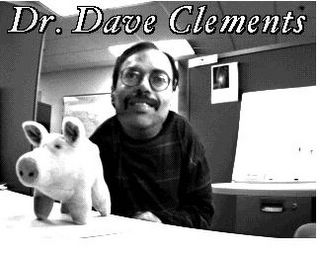This week will be the fourth and penultimate session for my Short Story II class. I'm going to step things up a bit this week and bring one of my "wilder" stories in. At first I wasn't sure if the class could deal with something really unusuall and "edgy," but now I see from my classmates' offerings that they should be okay with what I bring. Then, for the final class, I'll bring my new, 5300-word story, "The Parable of the Tapestry."
I spent a lot of the day pondering markets again. It's so hard to decide what's appropriate and what's not. And there's no point in wasting time and postage mailing a submission to a market you know won't care for it.
Speaking of horror, or Horror (with a capital h), last week on TV started the new Stephen King miniseries, "Kingdom Hospital." Most of the reviews, including that of Tom Shales, have wanted to blow this story back to "kingdom come." I don't think the show is that bad. Last week's premiere suffered from laggardly pacing, due largely to being stuffed with ads. I did like the talking ardvaark, crow and german shepard. The main problem with the show is the premise, though. It seems Kingdom Hospital rests on "uneasy ground" where the dead are restless, and therein lieth the horror.
But in fact, in my experience, hospital horror derives not from forgotten graveyards full of dead children's corpses, but rather the everyday horror of illness and the feeble attempts of human beings to endure them, or cure them. In a sense, hospitals would be more soothing if they DID have a few ghosts roaming about. At least ghosts would reassure us that there is an afterlife. The horror of hospitals derives from the mechanization of disease and its treatment: the white coats, the pink nurses' uniforms with the cutesy little teddy bears, the buzzes, dings and beeps, the glaring lights. I saw a recent news report on a study that showed hospital rooms as being noisier than a jet plane, on average. Dehumization is horrifying. Becoming a statistic is horrifying. Soullessness is the ultimate horror. If ghosts desired to roam a hospital, they would hardly need more justification than the locale itself. When I was a resident of the ICU for a whole summer back in 82, I couldn't help but imagine the many people who had died in the very same room I was staying in. Some years later, both my grandparents did pass away in that very ICU, in rooms adjacent to where I had been. Think of the things that occur in a typical hospital: dismemberments, disembowlings, forced feedings, castrations, removal of eyes, breasts, brains, kidneys, hearts lungs, and blood. Strange and poisonous chemicals are injected into inert victims .... er... "patients" just to see how they'll react.
The difference between a medical center and a good, old fashioned medieval torture chamber is that one is supposed to be grateful to the Gods of Medicine for the benificence that they bestow upon one. At least a victim of judicial torture is allowed to be pissed off at his or her tormenters! For in truth the medievalists were trying to save souls--confess and the torture will stop. Modern medicine is agnostic about the soul. Confession gains the inmate--inpatient--nothing. The attention is all devoted to the body, as though salvation of the body is all that matters, in a 13 billion-year-old universe in which we dwell for at best a century. And it's not even the whole body that counts. Patients are treated piecemeal. For example, to my doctors I was mainly a pair of lungs on a breathing machine. If something else went wrong, it was time for another specialist to come in and treat that specific limb of the body, as though the whole were not greater than the sum of the parts. All this being a long-winded way of pointing out that Herr King missed the real chance to explore horror in the modern world.
Subscribe to:
Post Comments (Atom)

No comments:
Post a Comment